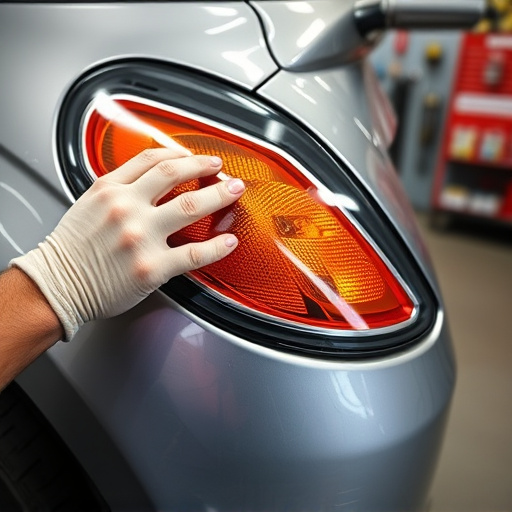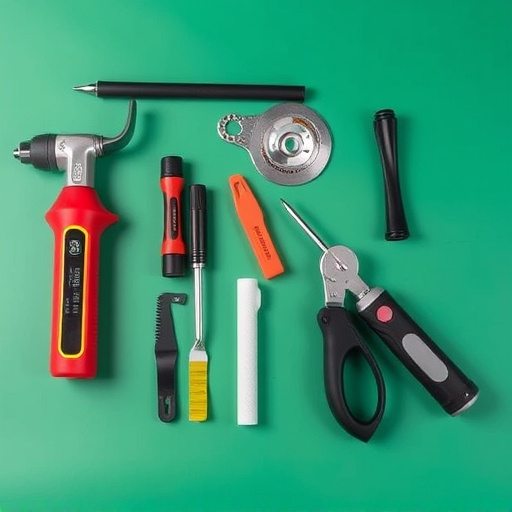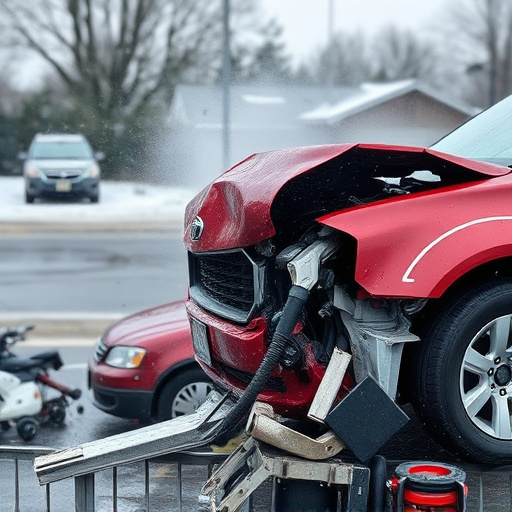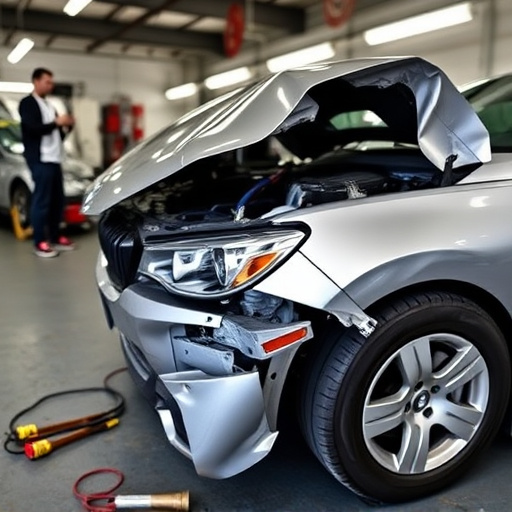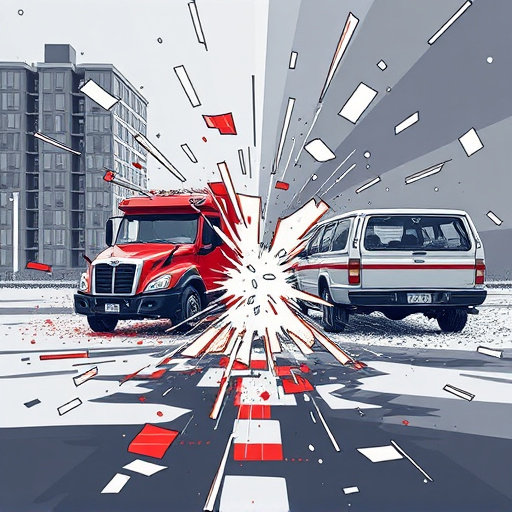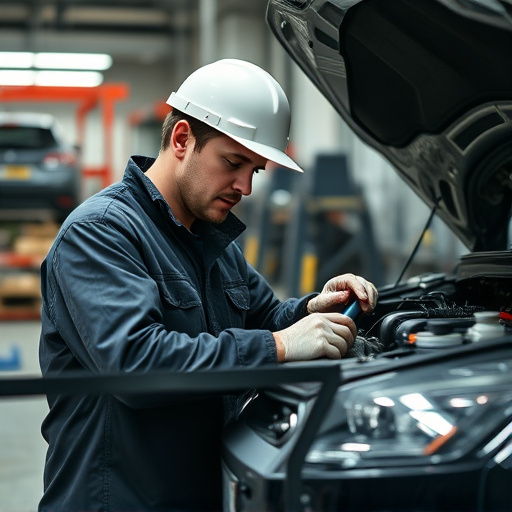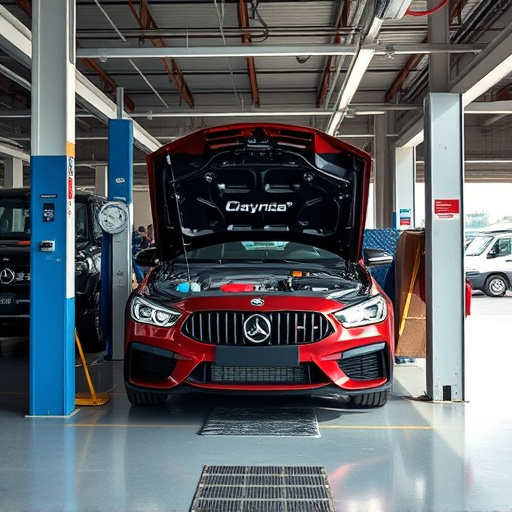Advanced diagnostic tools streamline repair completion timelines by swiftly identifying issues from engine systems to cosmetic damage in mechanical and automotive repairs, including Mercedes-Benz collision repairs. These technologies, like computer-aided scanning and software algorithms, minimize troubleshooting time, reduce costly mistakes, and enhance customer satisfaction through faster turnaround times. Digital record-keeping further optimizes the process for both general and specialized auto repair shops.
In today’s fast-paced automotive industry, optimizing the repair completion timeline is paramount for workshops to meet customer expectations. Diagnostic tools play a pivotal role in achieving this efficiency. This article explores the multifaceted impact of diagnostic techniques on reducing repair times. We delve into the capabilities of modern diagnostic tools and their precision, highlighting how accurate diagnostics can significantly streamline vehicle repair processes. Additionally, we offer strategies to further enhance diagnostic efficiency for quicker turnaround times.
- Understanding Diagnostic Tools and Their Efficiency
- Impact of Accurate Diagnostics on Repair Time
- Strategies to Streamline Diagnostics for Faster Completion
Understanding Diagnostic Tools and Their Efficiency
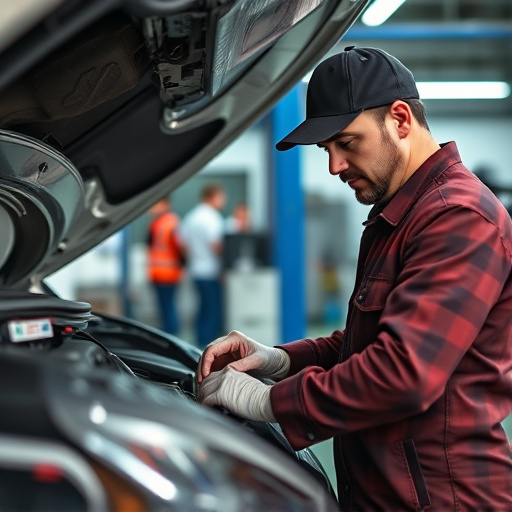
Diagnostic tools play a pivotal role in streamlining the repair completion timeline for both mechanical and automotive repairs, including specialized services like scratch repair. These tools are designed to swiftly and accurately identify issues within vehicles, from intricate engine systems to cosmetic damage like scratches on car bodies. Modern diagnostic equipment leverages advanced technology, such as computer-aided scanning and sophisticated software algorithms, to interpret complex data points gathered from various sensors in a vehicle.
The efficiency of these diagnostic methods is unparalleled, enabling technicians to pinpoint problems with precision and speed. This not only reduces the time spent on troubleshooting but also ensures that repairs are conducted effectively, minimizing costly mistakes. For instance, in automotive repair services, diagnostic tools can quickly detect faulty components or sensor malfunctions, facilitating prompt replacement or repair. This optimized process translates into faster turnaround times for customers, enhancing overall satisfaction with vehicle repair services.
Impact of Accurate Diagnostics on Repair Time
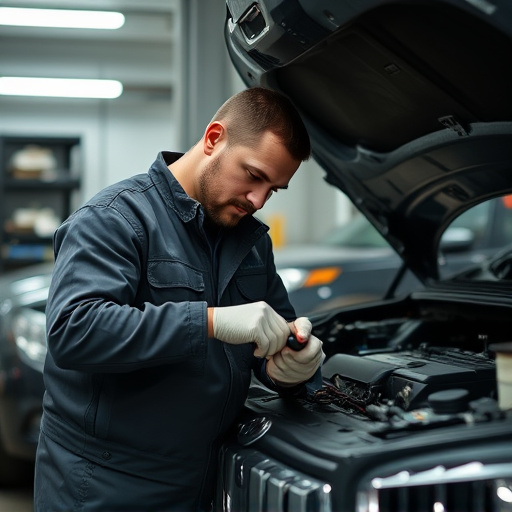
Accurate diagnostics play a pivotal role in optimizing the repair completion timeline for any vehicle, be it a Mercedes-Benz collision repair or general automotive services. When a car arrives at an auto body shop with damage, identifying and understanding the extent of the problem is crucial. Modern diagnostic tools allow technicians to swiftly pinpoint issues, from mechanical failures to complex electronic system malfunctions. This efficiency means repairs can begin promptly, reducing overall turnaround time.
With precise diagnostics, auto body shops can provide customers with more accurate estimates for repair duration. This transparency builds trust and helps set realistic expectations. Moreover, it enables mechanics to work systematically, addressing all issues in a logical order, which further streamlines the repair process. Ultimately, this leads to satisfied customers who receive their vehicles back on time, contributing to the overall success of automotive repair services.
Strategies to Streamline Diagnostics for Faster Completion
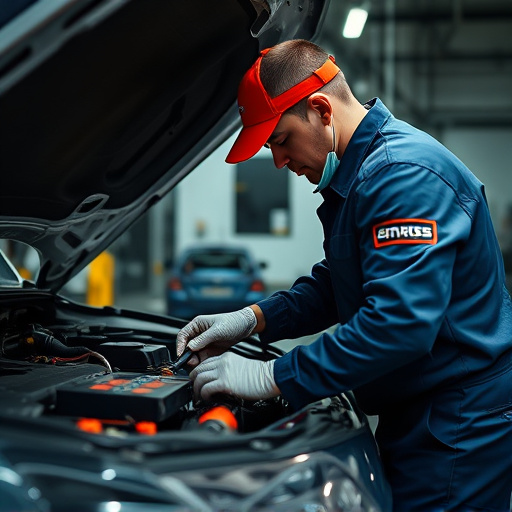
Streamlining diagnostics is a key strategy to expedite the repair completion timeline. Auto repair shops can implement efficient processes by adopting advanced technologies and tools that facilitate faster and more accurate assessments. For instance, utilizing diagnostic scan tools that connect directly to a vehicle’s computer system allows technicians to swiftly identify issues and retrieve detailed code readings, eliminating the need for time-consuming manual inspections. Additionally, investing in specialized equipment tailored for specific repair tasks, such as state-of-the-art welding machines or precision measurement devices, can significantly reduce the diagnostic phase, enabling faster and more efficient work.
For collision repair centers and classic car restoration shops, streamlining diagnostics is even more critical to meet client expectations. By training staff on the latest diagnostic techniques and software, these facilities can ensure that every step of the repair process, from initial assessment to final inspection, runs smoothly. Moreover, implementing digital record-keeping systems enables seamless access to vehicle history, previous repairs, and diagnostics reports, further optimizing the repair completion timeline for both auto repair near me and specialized restoration projects.
Diagnostics play a pivotal role in optimizing the repair completion timeline. By employing efficient tools and accurate assessments, technicians can significantly reduce downtime. Implementing streamlined diagnostic strategies not only enhances productivity but also ensures customers receive their repaired items faster. This approach is key to staying competitive in today’s fast-paced world, where timely service delivery is paramount.

